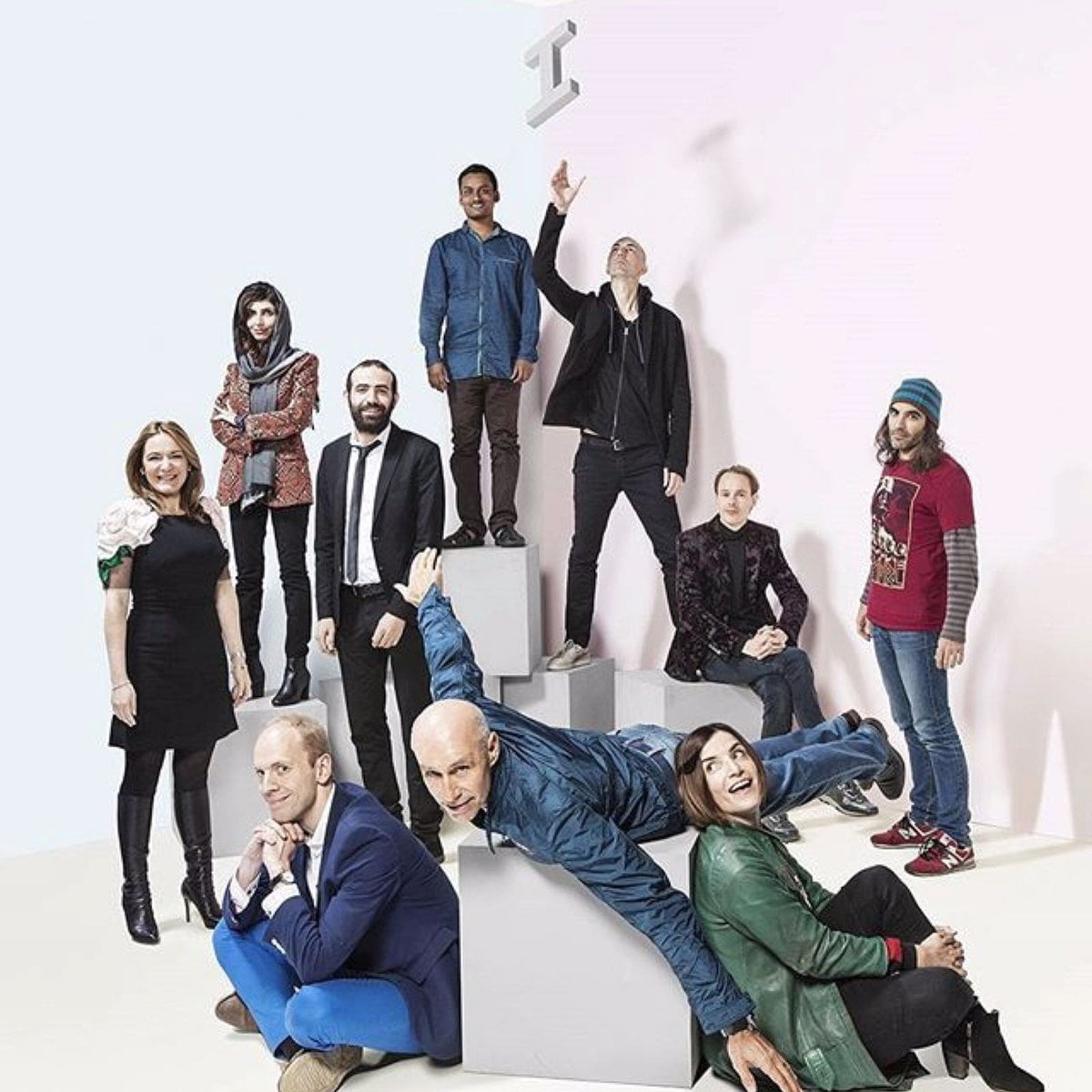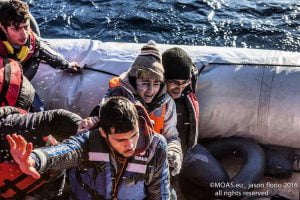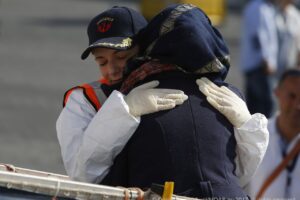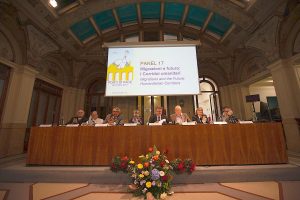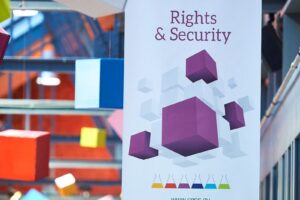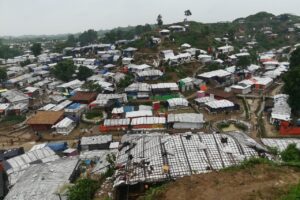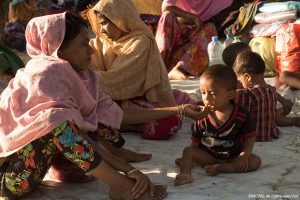London, 3rd November 2016
The event organised by WIRED UK was a valuable chance to re-introduce MOAS activities and initiatives. MOAS is a professional search and rescue organisation created to mitigate the loss of life at sea, using empathy as a universal language.
The people we meet who are crossing the Mediterranean always have a difficult past and the toll of the violence experienced is often unbearable.
Moreover, before even making the crossing, they would be aware that thousands of people have already died attempting the same journey. Still, they see no other option but trying.
They will take that chance. They will make it to Europe, or they will die trying.
Every day people die on Europe’s doorstep.
My husband Christopher and I got this reality check in the summer of 2013.
We were on holiday in the Mediterranean, cruising along the deadliest migratory route in the world when we spotted a tangible sign of a humanitarian catastrophe that has been unfolding in front of our eyes.
As citizens, we had the moral and ethical responsibility to care. As entrepreneurs, we had the power to do something concrete.
We knew we didn’t have “the solution” in our hands.
But what we did have was our experience as entrepreneurs. Thanks to our company Tangiers Group, a global business dealing with insurance, emergency assistance and claim-handling, we had the know-how, the resources and the will to save lives.
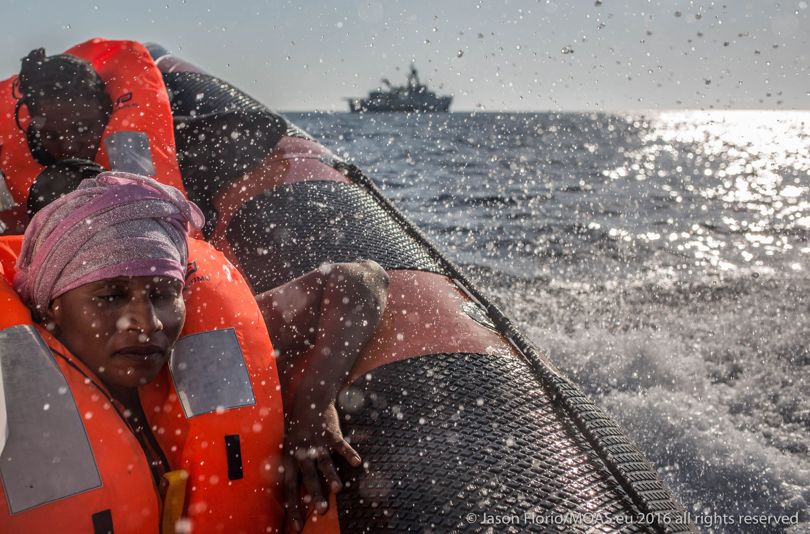
We became a kind of ambulance of the sea. We hired a professional crew with expertise in search-and-rescue as well as post-rescue care.
One of our goals was to shift the attention of the media and humanitarian organizations from land to the sea, making an appeal to civil society. And we succeeded!
Following our initiative, we are proud to now see so many other humanitarian organizations out at sea rescuing people and saving lives.
In January 2015, having run out of our own private funds and afraid of not being able to return at sea, we launched our crowdfunding initiatives. Civil society and the public in general responded positively to our call for help. We received support and donations from all over the world. Now, thanks to our global donors MOAS is an international organisation.
Since the end of we have also managed to run a second ship: the Responder, a 50-meter vessel.
On the day of the WIRED event -the 3rd of November- we had just finished multiple rescue missions saving hundreds of people, the youngest was a baby just 4days old. Throughout my speech I was very emotional because my body was on that stage in London, but my heart was with our crew in the Mediterranean.
Together with my family, I have taken part in many missions over the last 3 migratory seasons while still working in our company, proving that you can be an entrepreneur and run an NGO.
People are living creatures. They are not books, they are not paper sheets that you staple in a room. People need love and attention.
On this occasion I wanted to share Sadik’s story with the audience.
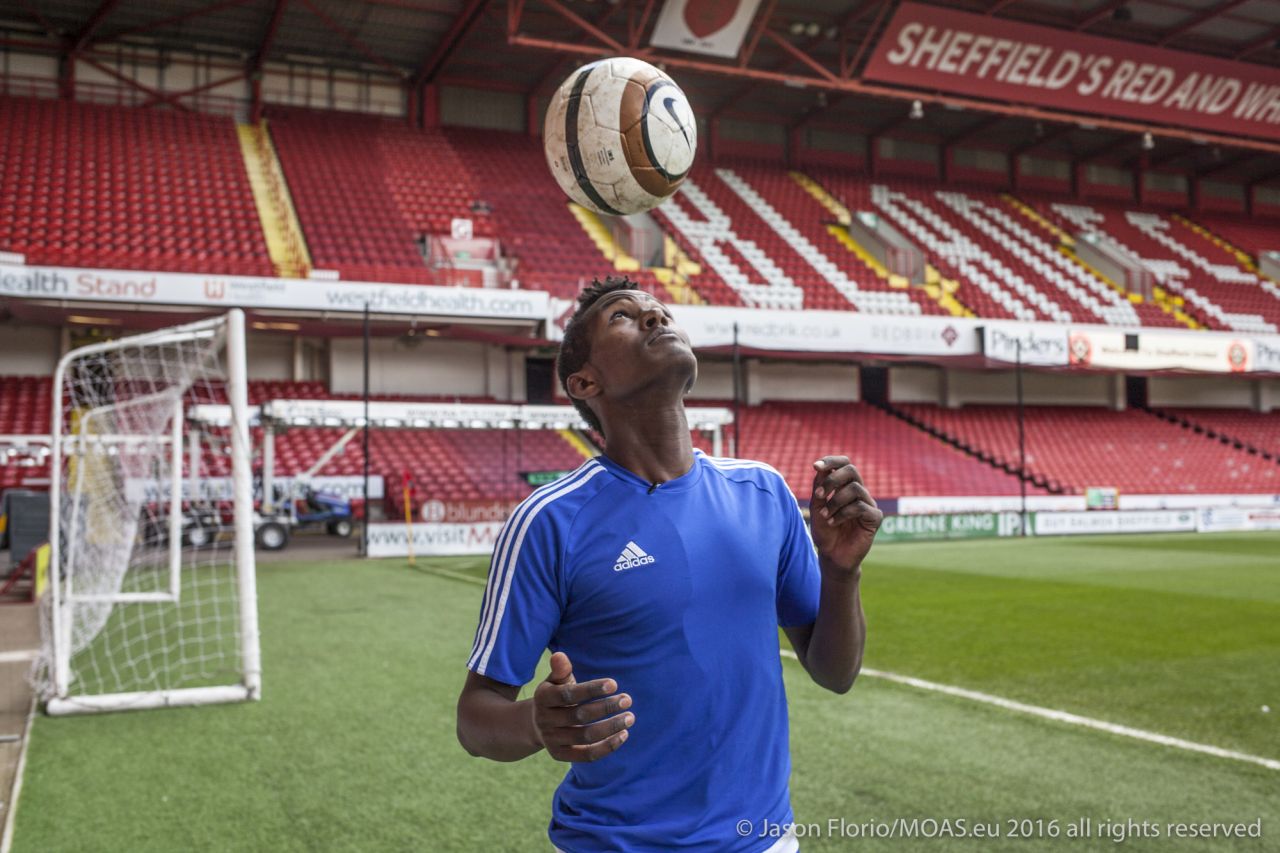
Sadik is 17 and originally from Ethiopia, he belongs to the Oromo, the biggest ethnic minority group which has been brutally persecuted by the Ethiopian government for years.
When we found Sadik, he was at sea and he told us that for many months he had not been in contact with his family. On his back we could still see his fresh wounds. I will never forget the way his expression changed when he started describing the horrible journey he went through.
We don’t know what would have happened, if we did not find his boat with 150 people onboard… But what we know is that Sadik would have run for his life whether or not a rescue ship was there to save him; whether or not a razor fence was built to stop him from crossing a border.
History teaches us that building walls or distancing ourselves by placing responsibility only in the hands of legislators and a few countries will not help us to find a solution.
What we can do is to rescue our humanity, our universal values of solidarity, our creativity and help people like Sadik to integrate and contribute to our society.
We cannot stand by and watch anymore. We cannot turn our head and pretend that this humanitarian crisis does not affect us.
It does and MOAS provides evidence that everyone can make a difference when it comes to mitigate the loss of lives at sea.
